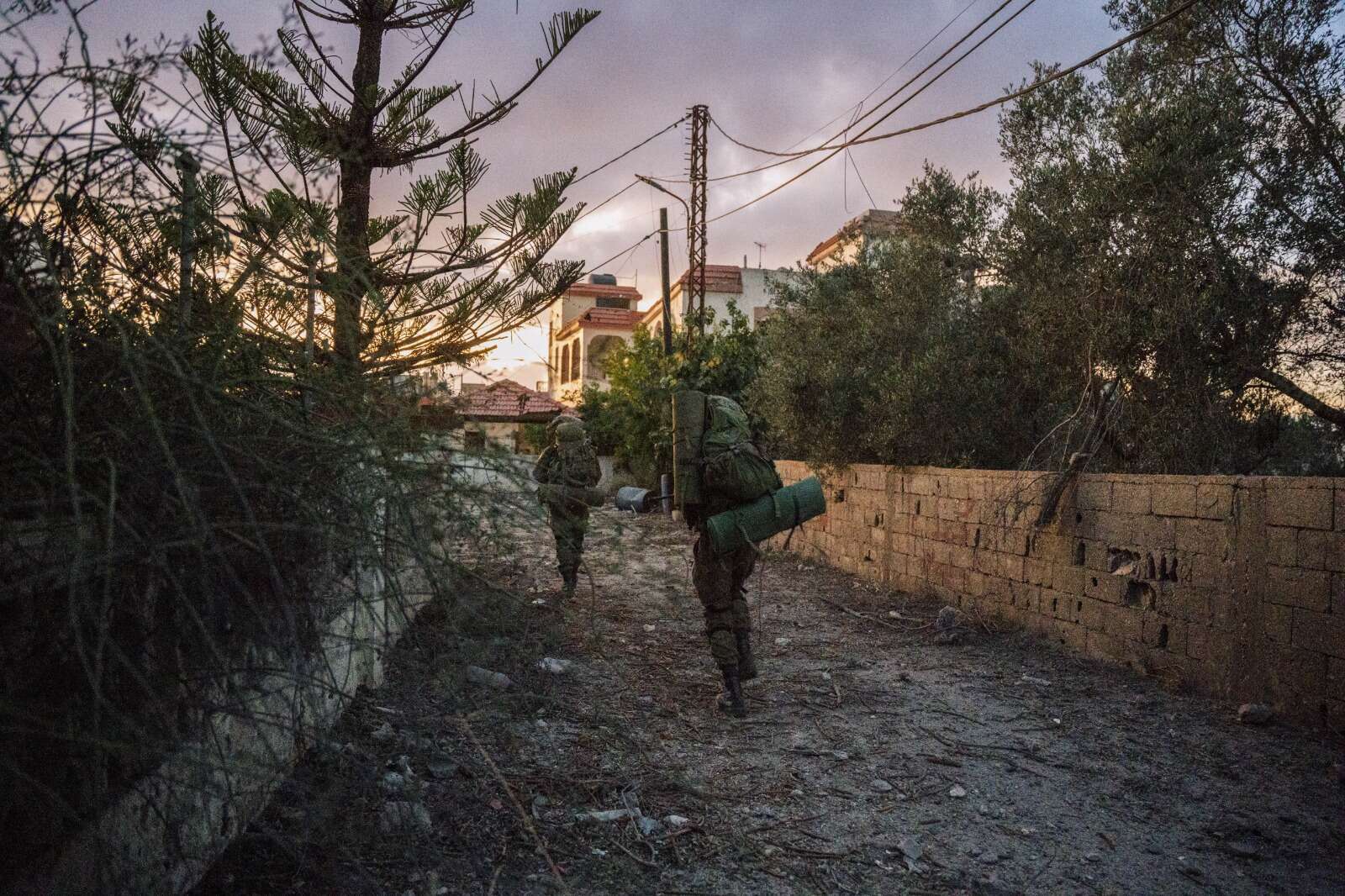Israel considers extended presence in Lebanon
Under the terms of the ceasefire agreement, the IDF committed to withdrawing from Lebanon within 60 days. However, the slow deployment of the Lebanese Army and the extensive Hezbollah arsenal still being uncovered in the region are raising concerns in Israel.
Yoav Limor
Israel Hayom
Dec 29, 2024
IDF forces in Lebanon
Israel is exploring the possibility of keeping IDF forces in key positions in southern Lebanon even after the 60-day deadline stipulated in the ceasefire agreement for a full withdrawal.
This option has been raised in recent high-level security and political discussions for two primary reasons: The sluggish deployment of the Lebanese Army in the south, and the continued discovery of Hezbollah weaponry and infrastructure, coupled with ongoing efforts by the terrorist organization to rebuild its capabilities with Iranian assistance.
Israel is struggling to understand the delays in the Lebanese Army's deployment. One possibility is operational difficulties related to dispatching large, capable forces to the south. Another factor could be Hezbollah pressuring the Lebanese Army to avoid taking positions in southern Lebanon, leaving a vacuum for Hezbollah to exploit later.
In recent weeks, Israel has repeatedly complained to international bodies about the slow pace of the Lebanese Army's actions, warning that if Lebanon does not fulfill its obligations under the agreement, Israel may need to stay in southern Lebanon to safeguard its northern communities.
IDF forces in Syrian territory
Over the weekend, the IDF identified and destroyed additional Hezbollah infrastructure in southern Lebanon, including a tactical tunnel and various weaponry. It is believed that more armaments and facilities remain, and significant efforts are being made to locate and neutralize them in the coming weeks. Simultaneously, Israel continues operations along the Lebanon-Syria border to prevent Hezbollah and its Iranian patrons from smuggling weapons into Lebanon from Syria before they fall into rebel hands.
In line with this, the Israeli Air Force conducted several strikes last week on Hezbollah targets along the Syria-Lebanon border. Israeli officials believe Iran may seek alternative routes for smuggling advanced weapons to Hezbollah, including direct flights to Beirut's airport, circumventing the tightened land and sea routes.
Should Iran pursue such direct smuggling methods, Israel faces complex dilemmas ranging from intercepting civilian aircraft concealing arms to resuming airstrikes in Beirut. Israel would likely alert the US and other nations that such activity violates the ceasefire agreement, potentially prompting unilateral Israeli action.

IDF operations in southern Lebanon
IDF soldiers in Lebanon
The possibility of keeping IDF forces in southern Lebanon will be discussed with both the outgoing and incoming US administrations, as the final withdrawal deadline coincides with the inauguration of President Trump. Such a decision could lead Hezbollah to similarly violate the agreement, potentially reigniting hostilities, whether on a limited or extensive scale.
It is important to note that no final decision has been made about maintaining a presence in Lebanon. Discussions will continue in the coming weeks, and any decision will likely involve stationing forces at only a few key locations where Israeli communities remain vulnerable due to incomplete defense infrastructure.
In parallel, the IDF is preparing to maintain its forces on the Syrian front, including in the Hermon area and east of the international border in the Golan Heights. While international observers praise rebel leader Mohammed al-Julani, Israel remains concerned about increasing violence by his forces against remnants of the Assad regime and its army.
Recent reports include mass executions, beheadings of regime opponents, and public humiliation of minorities, especially Alawites. In one widely circulated video, Alawite men are seen crawling on the ground and barking, while another clip shows a former Syrian army officer being publicly whipped.
Meanwhile, the IDF has intensified operations in Gaza. Over the weekend,
approximately 250 Palestinians were arrested at the Kamal Adwan
hospital and transferred for interrogation in Israel. Concurrently,
strikes targeted areas around Beit Hanoun after two rockets were fired
toward Jerusalem and central Israel.

IDF forces in Gaza
Israeli officials hope this heightened pressure will corner Hamas leader Mohammed Sinwar and lead to concessions that could pave the way for a breakthrough in negotiations for the release of 100 hostages still held in Gaza.

![The Israeli army reinforces its ground forces as military mobility continues in Golan Heights, Israel on December 9, 2024 [Mostafa Alkharouf/Anadolu Agency]](https://i0.wp.com/www.middleeastmonitor.com/wp-content/uploads/2024/12/AA-20241209-36435672-36435645-ISRAELI_ARMY_REINFORCES_TROOPS_IN_GOLAN_HEIGHTS-scaled-e1733822936215.jpg?fit=1200%2C800&ssl=1)

No comments:
Post a Comment